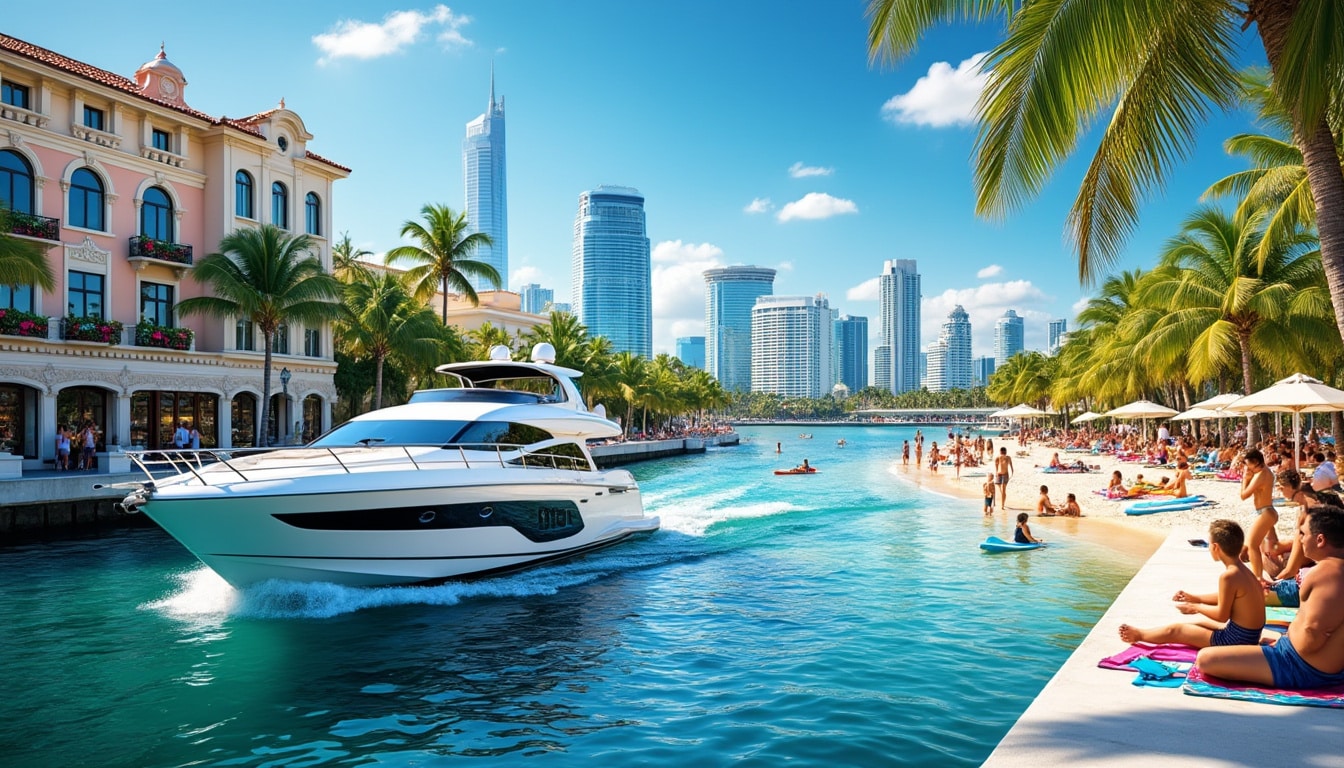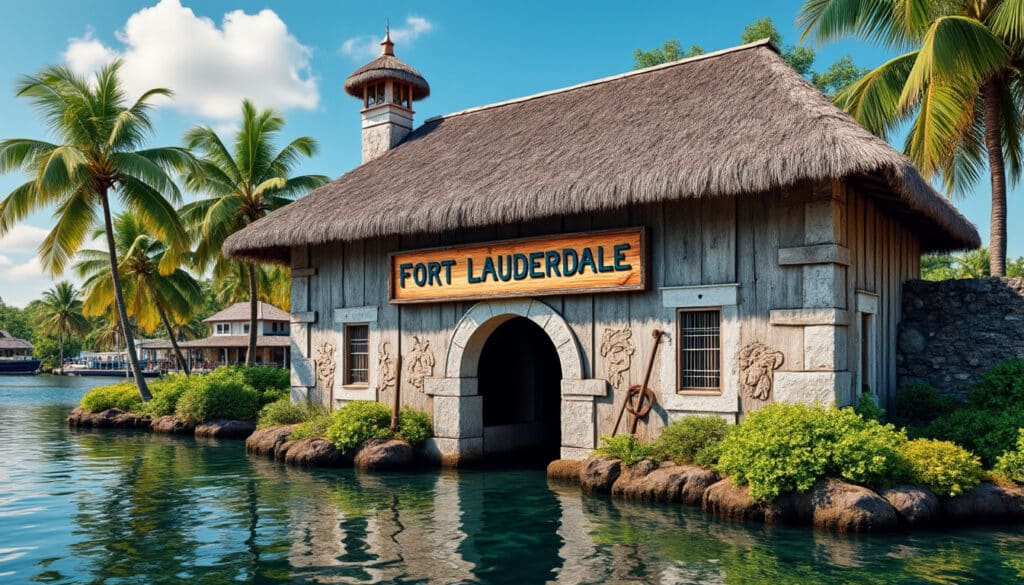Fort Lauderdale, often overshadowed by its flashy neighbor Miami, possesses its own unique blend of characteristics that contribute to its reputation and identity. Known as the “Venice of America,” this enchanting city is home to an extensive network of canals, captivating beaches, and an individual cultural identity that draws visitors and residents alike. The city’s multifaceted personality ranges from its glamorous maritime culture to its lively nightlife, offering a diverse experience for anyone who steps onto its sunny shores. Through this exploration, we delve into the historical roots, cultural dynamics, natural beauty, and the myths and realities that shape Fort Lauderdale’s reputation today.
The Historical Tapestry of Fort Lauderdale
Fort Lauderdale’s rich history begins long before its incorporation in 1911. The area was first inhabited by the Tequesta Native Americans, a peaceful tribe that thrived along the New River until the arrival of European explorers. Unfortunately, European contact brought disease and conflict, leading to the decline of the Tequesta by the mid-18th century. Throughout the 19th and early 20th centuries, Fort Lauderdale remained largely undeveloped until the Florida land boom of the 1920s sparked its transformation into a bustling urban center.
One of the pivotal moments in the city’s history occurred during the Second Seminole War when the United States built a series of forts, including the first structures named “Fort Lauderdale.” The forts, led by Major William Lauderdale, played a significant role during the conflict, but were abandoned after the war ended in 1842. It wasn’t until the completion of the Florida East Coast Railway in 1896 that the city began its journey towards urbanization.
The city’s development accelerated rapidly, culminating in its formal incorporation in 1911, and it was designated the county seat of Broward County in 1915. However, the Great Depression and the devastating Hurricane of 1926 temporarily stalled progress. Nevertheless, World War II marked a turning point, as Fort Lauderdale became a major base for the U.S. military, ushering in a wave of post-war prosperity.
Today, Fort Lauderdale embraces its diverse multicultural heritage, with historical landmarks like the Stranahan House and the Old Dillard Museum serving as reminders of its storied past. These historical attractions draw visitors eager to learn about the city’s transformation from a modest settlement into the vibrant urban landscape it is today.
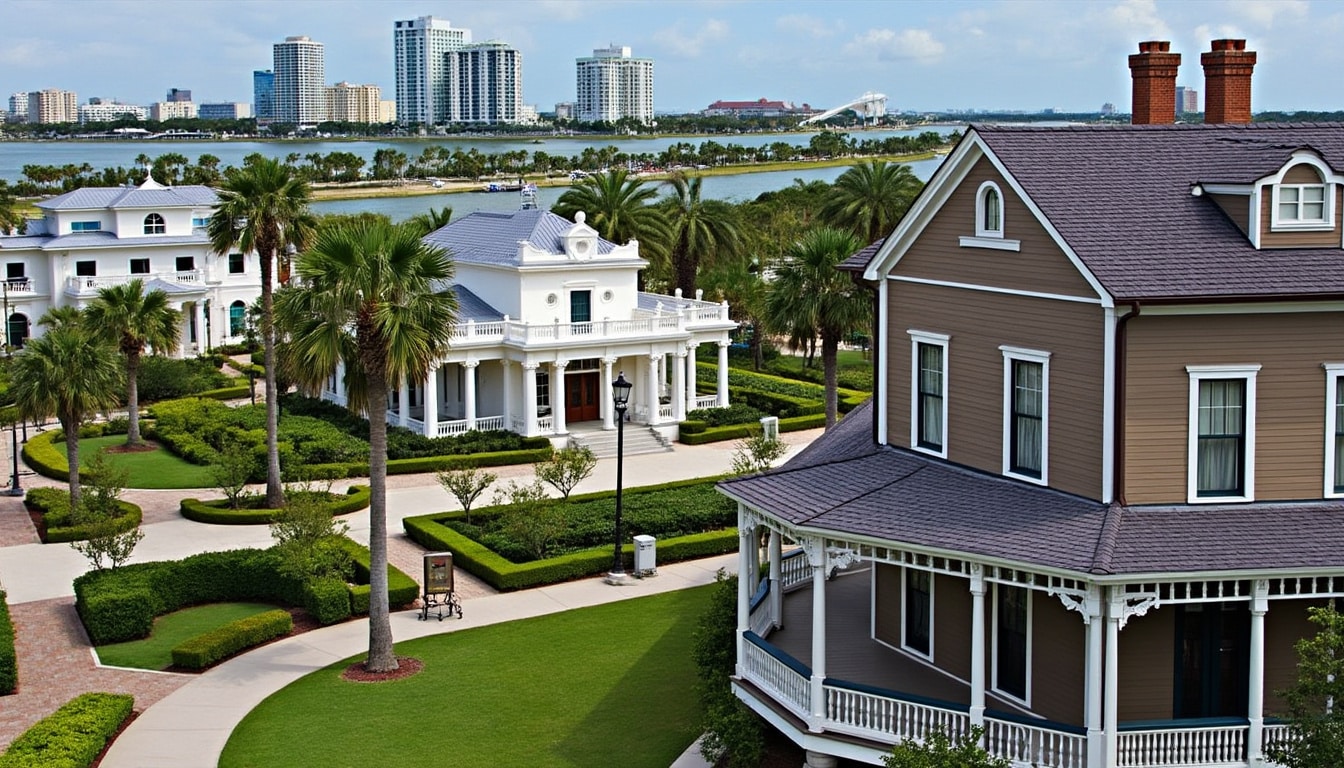
Cultural Dynamics and Community Diversity
Often celebrated for its vibrant and diverse community, Fort Lauderdale boasts one of the largest LGBTQ+ populations in the U.S. The city’s inclusive atmosphere has made it a welcoming haven for people from all walks of life. Neighborhoods like Wilton Manors are celebrated for their LGBTQ+-friendly businesses, events, and a general ethos of acceptance that pervades the community.
Fort Lauderdale’s cultural landscape is an eclectic mix of influences, from its annual Caribbean Carnival to the Florida Renaissance Festival, reflecting the myriad cultural traditions that call this city home. A hub for the arts, the city is home to the Broward Center for the Performing Arts, which showcases a variety of performances ranging from Broadway musicals to concerts.
The city’s demographics are incredibly diverse, with approximately 31% of its population being of African descent, including a significant number of Caribbean immigrants. Hispanic or Latino residents make up about 13.7% of the population, adding to the cultural mosaic with their rich food, music, and traditions.
Fort Lauderdale’s bustling Avenue, Las Olas Boulevard, is a focal point for art enthusiasts, offering galleries exhibiting works from local and international artists. It’s also a culinary hotspot, featuring an array of restaurants offering diverse cuisines, from authentic Italian to innovative fusion dishes.
- 🌈 LGBTQ+ Friendly Areas
- 🎨 Art and Culture Events
- 🍴 Culinary Variety on Las Olas
Such multicultural dynamism is pivotal to Fort Lauderdale’s identity, providing both residents and visitors with a sense of openness and cultural richness that defines this Floridian city.
Iconic Landmarks and Natural Attractions
Fort Lauderdale is not just an inviting city due to its cultural diversity but also because of its stunning natural beauty and iconic landmarks. Known as the “Venice of America,” the city is distinguished by its 165 miles of waterways, perfect for exploring by boat. These waterways have also earned the city recognition as the yachting capital of the world.
Visitors flock to Fort Lauderdale Beach to indulge in its golden sand and clear blue waters, making it ideal for sunbathing, swimming, and snorkeling. The beach serves as a vibrant social hub, curating a lively atmosphere all year round. Nearby, The Galleria at Fort Lauderdale offers a premium shopping experience with a mix of high-end and boutique stores.
Nature enthusiasts would not want to miss Bubier Park or Riverwalk Fort Lauderdale with their scenic walking paths, lush greenery, and captivating views along the New River. Each year, the Fort Lauderdale International Boat Show draws maritime enthusiasts from around the globe, showcasing an array of luxury yachts and boats.
- 🌊 Waterway Exploration
- 🌞 Beach Activities
- 🛍️ Shopping at The Galleria
- 🚶♀️ Walking Tours at Riverwalk
These landmarks and natural attractions are integral to Fort Lauderdale’s identity, creating a serene yet vibrant backdrop that complements the city’s lively cultural scene.
Defining the Urban Identity: Architecture and Stereotypes
Fort Lauderdale’s architecture reflects its historical growth and modern innovation. The city’s skyline is dominated by a mix of historic structures and futuristic high-rises, creating a unique urban tapestry. Noteworthy architectural highlights include the iconic Riverside Hotel, renowned for being the oldest operating hotel in Fort Lauderdale. This blend of the old and new is mirrored in attractions such as the Museum of Discovery and Science, where history meets cutting-edge technology.
While Fort Lauderdale enjoys a reputation for luxury and leisure, certain stereotypes persist, such as the belief that everyone owns a yacht or that the city is solely a snowbird haven. These generalizations simplify the city’s diverse character and evolving identity. In reality, Fort Lauderdale is home to an array of residents, from young professionals and artists to retirees seeking a coastal lifestyle.
Reservations also arise about Fort Lauderdale’s nightlife and community dynamics. While the city once boasted the title of spring-break capital, it has since matured into a destination for high-energy nightlife and family-friendly activities. The inviting Fort Lauderdale Marriott services tourists and locals with plush amenities and superb views of the coastline.
| Feature | Reality | Stereotype | Fun Fact 🎉 |
|---|---|---|---|
| Yachts | Not everyone owns one | Everyone has a yacht | 165 miles of waterways |
| Residents | Diverse population | Only snowbirds | A mix of ages and backgrounds |
| Nightlife | High-energy and diverse | Only for college students | Once the spring-break capital |
Through an exploration of its architectural and social landscape, Fort Lauderdale continues to redefine its identity in dynamic and unexpected ways, proving it to be more than just a coastal paradise.
Environmental Initiatives and Future Prospects
Fort Lauderdale’s commitment to environmental sustainability and resilience is increasingly at the forefront of its identity, addressing challenges like coastal erosion and climate change. The city has adopted measures to combat rising sea levels, including the construction of innovative sea walls and implementing strict zoning laws to protect its natural habitats.
The establishment of the Aqua Florida initiative exemplifies Fort Lauderdale’s dedication to preserving its waterways. Targeting pollution reduction and the conservation of marine life, these efforts aim to maintain the health of the city’s beloved canals and coastal areas.
The future prospects of Fort Lauderdale also hinge on its economic adaptability. While tourism is a major economic driver, contributing significantly to the city’s prosperity, Fort Lauderdale is diversifying its economy with budding sectors in technology and finance.
Partnerships with local and international institutions, alongside strategic city planning, are key to cultivating Fort Lauderdale as a forward-thinking and sustainable urban center. The city’s ability to balance its growth and environmental responsibilities will define its continued success in the 21st century.
- 🌱 Eco-friendly Initiatives
- ⚙️ Economic Diversification
- 🚀 Future Prospects
With its eyes set on a sustainable and prosperous future, Fort Lauderdale positions itself as a leading city that embraces both its vibrant present and a dynamic future, ensuring that it remains an iconic destination for generations to come.
Frequently Asked Questions About Fort Lauderdale
Q: What makes Fort Lauderdale a unique destination?
A: Known as the “Venice of America,” Fort Lauderdale offers 165 miles of canals, vibrant cultural events, and stunning beaches, making it a top destination for both relaxation and adventure.
Q: How does Fort Lauderdale cater to the LGBTQ+ community?
A: The city is known for its inclusive atmosphere, featuring LGBTQ+-friendly neighborhoods like Wilton Manors, numerous gay bars, events, and supportive community initiatives.
Q: What environmental challenges does Fort Lauderdale face?
A: Like many coastal cities, Fort Lauderdale is tackling issues such as sea-level rise and coastal erosion through sustainable practices and infrastructure improvements.
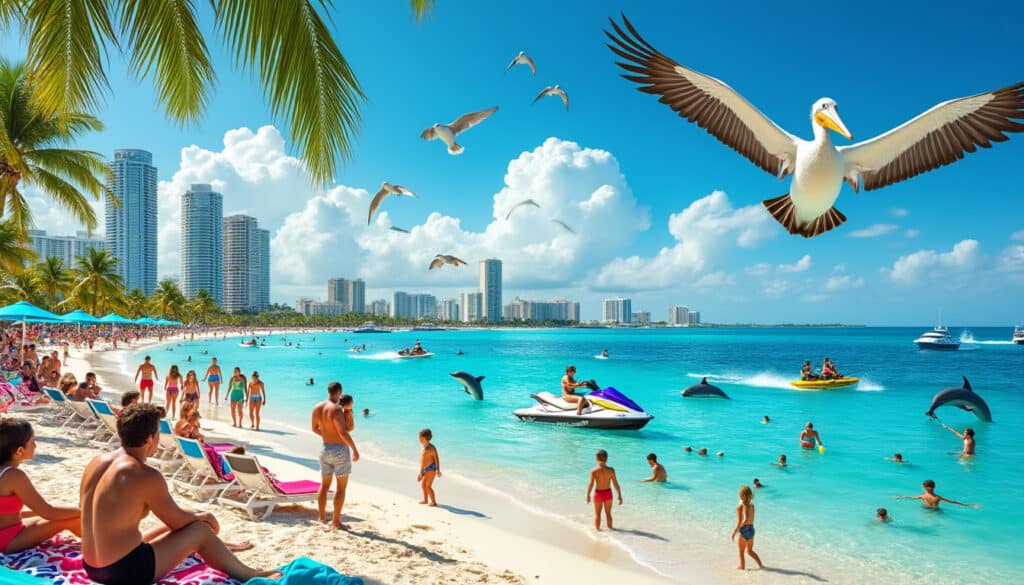
Fun Facts & Curiosities About Fort Lauderdale
Fort Lauderdale, a striking city in sunny Florida, has become a captivating destination for countless visitors worldwide. Known for its sparkling beaches, intricate canals, and vibrant culture, it offers more than just traditional tourist attractions. With fascinating history, an array…
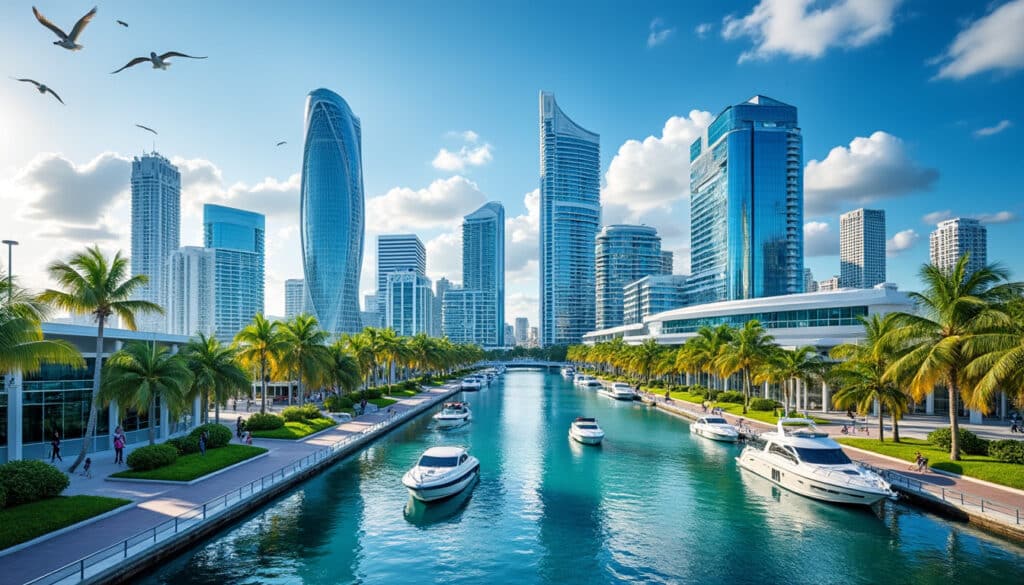
Architecture and urban features of Fort Lauderdale
Often referred to as the “Venice of America,” Fort Lauderdale, Florida is a destination that seamlessly blends history, innovation, and scenic beauty. This vibrant city is renowned for its extensive canal networks, pristine beaches, and an eclectic architectural landscape. On…
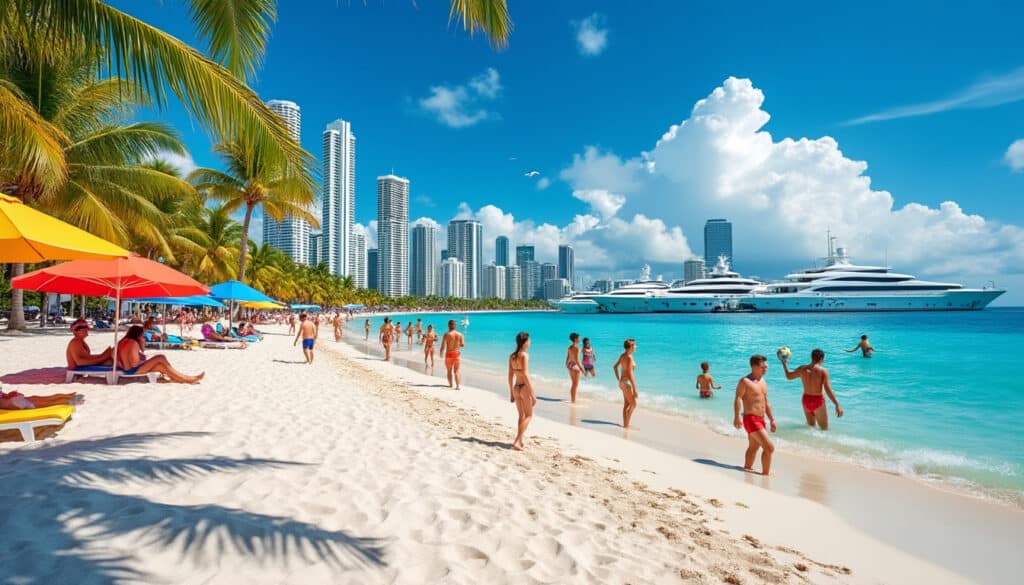
Basic facts about Fort Lauderdale
Fort Lauderdale, known as the “Venice of America,” is a vibrant city set against the picturesque backdrop of Florida’s Atlantic coastline. It is a bustling hub that features a unique blend of stunning beaches, a complex network of canals, and…
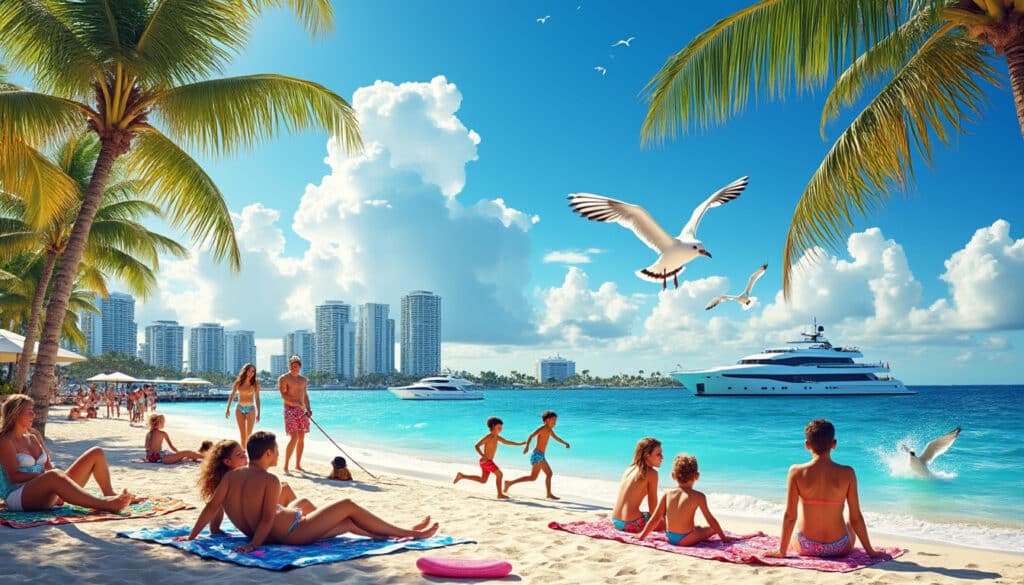
Nestled along the southeastern coast of Florida, Fort Lauderdale is a city that paints a vivid picture of sun-drenched beaches, canal-laden waters akin to Venice, and a lifestyle that intertwines with both leisure and purpose. Known for its stunning coastline,…
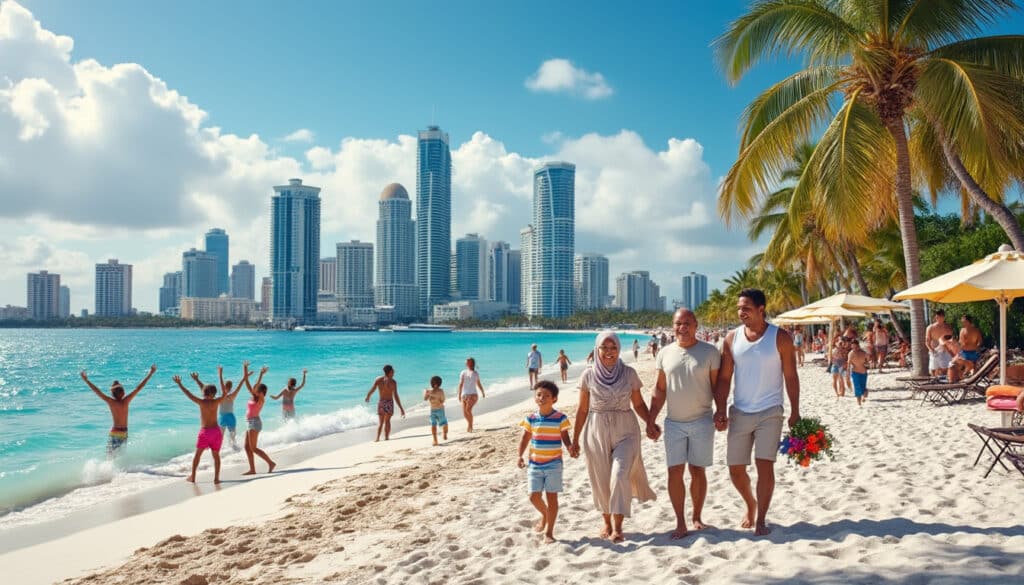
Demographics and geography of Fort Lauderdale
Fort Lauderdale, known as the “Venice of America” for its expansive and intricate canal system, offers a rich tapestry of demographics and geographical allure. This coastal gem, with its pristine beaches and vibrant cultural scene, attracts visitors and residents alike.…
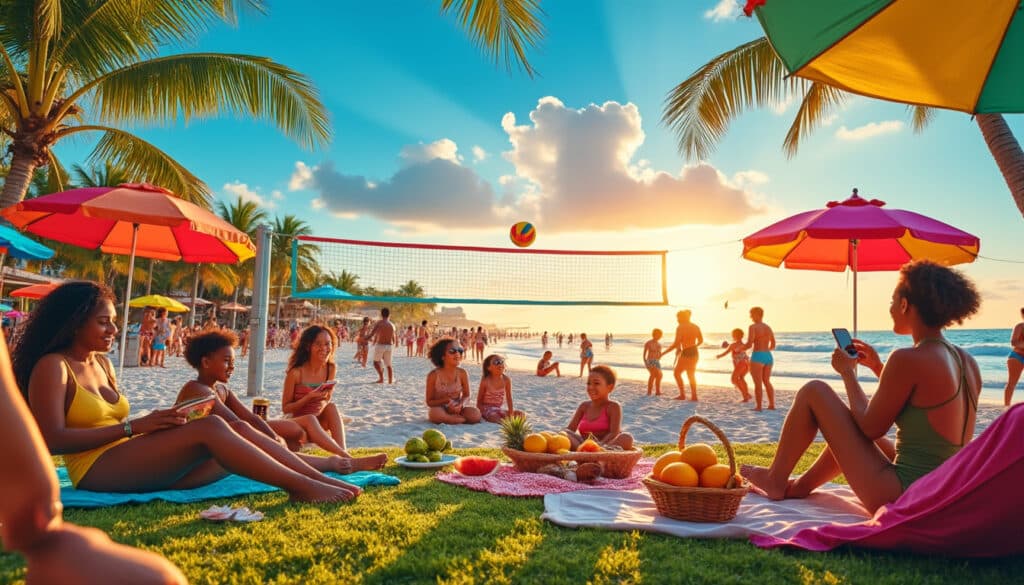
Holidays and celebrations in Fort Lauderdale
In the Sunshine State, Greater Fort Lauderdale shines brilliantly during the holiday season, offering an enticing fusion of tradition, culture, and modern flair. Whether seeking holiday lights along Las Olas or enjoying beachfront festivities, this area provides a wealth of…
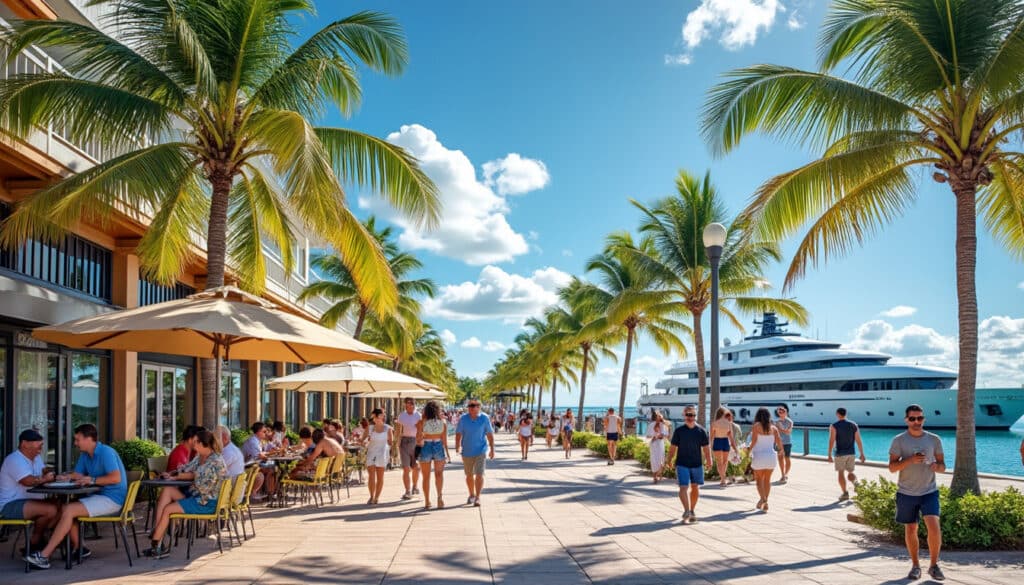
Language and spelling of Fort Lauderdale
Nestled along the sun-drenched shorelines of Florida, Fort Lauderdale stands as a vibrant hub of culture, tourism, and maritime allure. Renowned for its sprawling beaches and dynamic urban life, this coastal gem offers a plethora of intriguing elements to explore,…
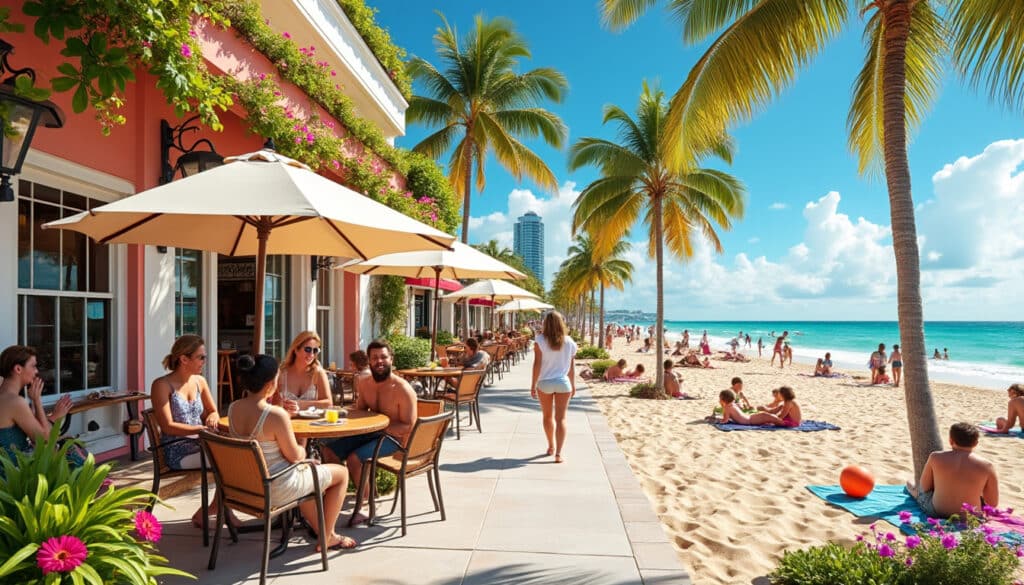
Local tips for tourists in Fort Lauderdale
Fort Lauderdale, often referred to as the “Venice of America,” is a vibrant hub for tourists seeking sun, sand, and a touch of culture. Nestled on Florida’s southeastern coast, this city offers a plethora of activities tailored for both beach…
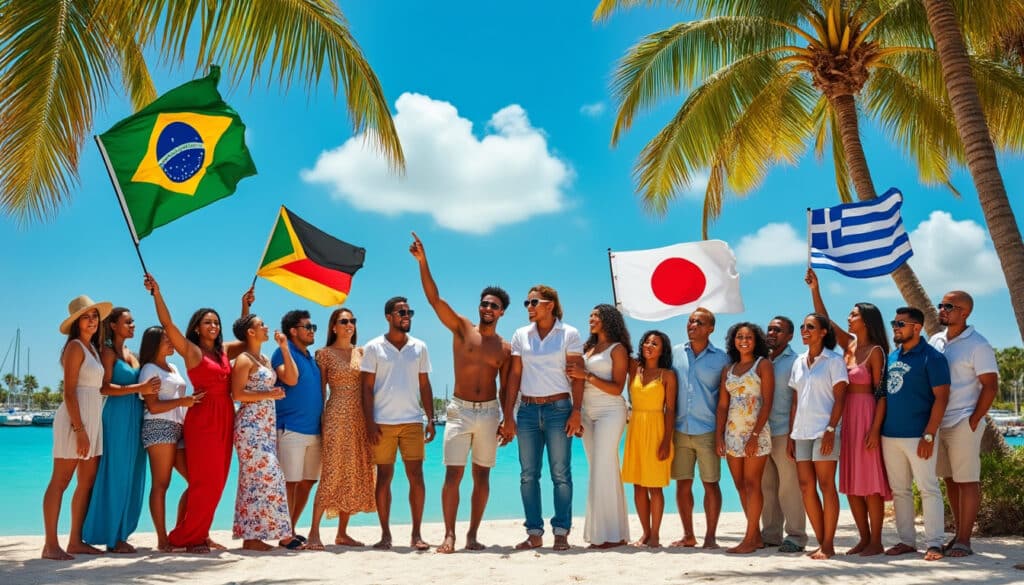
Names, flags, and identity of Fort Lauderdale
Renowned for its beautiful coastlines and vibrant yachting scene, Fort Lauderdale’s name is steeped in a rich history that combines military feats, cultural evolution, and natural beauty. Nestled in sunny Florida, this city has grown from a strategic military fort…
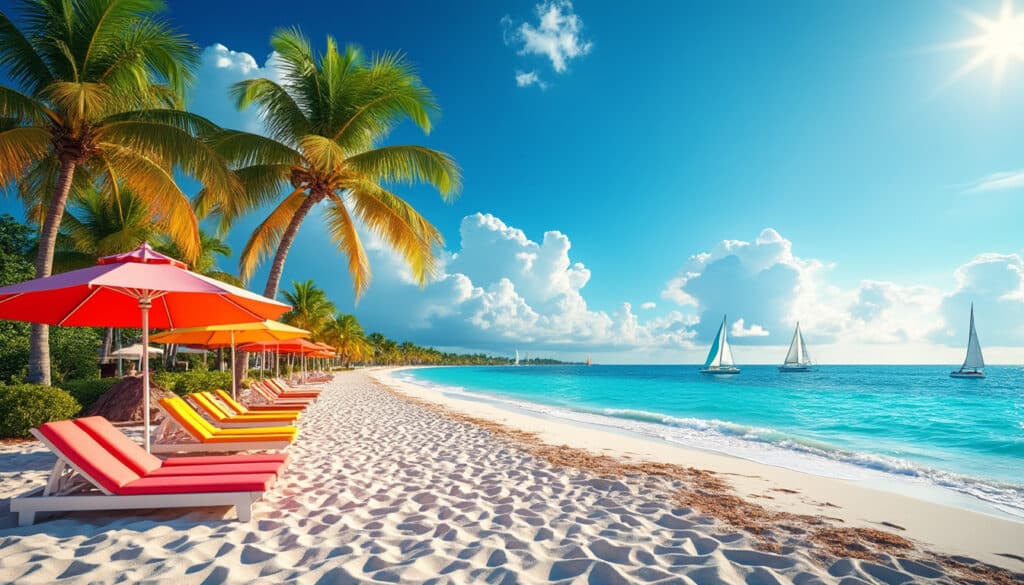
Climate & Weather in Fort Lauderdale
Fort Lauderdale, a sun-drenched paradise in Florida, is famed for its picturesque beaches, intricate canal system, and ultimate vacation allure. Understanding the climate and weather patterns of this coastal city is essential for travelers and residents alike. Knowledge of the…
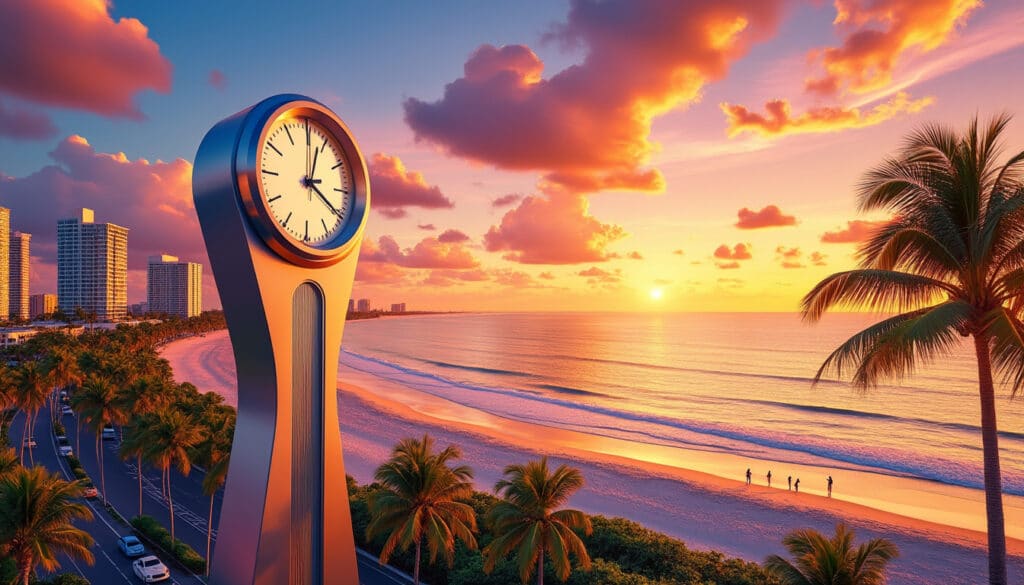
Time and time zone in Fort Lauderdale
🌴 Known for its beautiful beaches and bustling culture, Fort Lauderdale offers more than just scenic views. A hub of diverse experiences, it’s a place where time gains a unique dimension. From the daily rhythm determined by its Eastern Time…
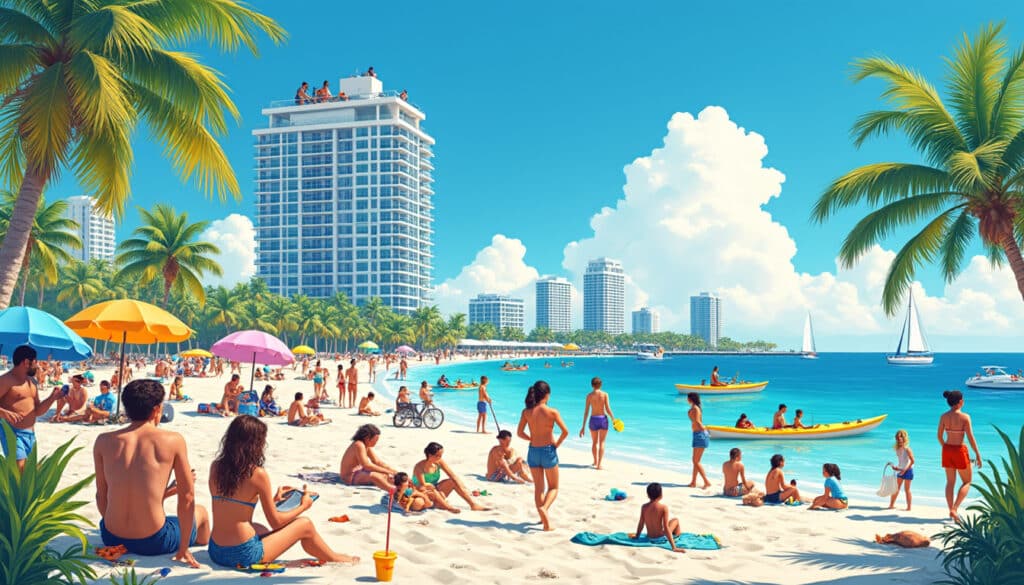
Unusual facts and social issues in Fort Lauderdale
Fort Lauderdale, often recognized for its sun-kissed beaches and vibrant nightlife, harbors an array of unusual facts and social intricacies that paint a more complex picture of this coastal city. Known as the “Venice of America” due to its vast…
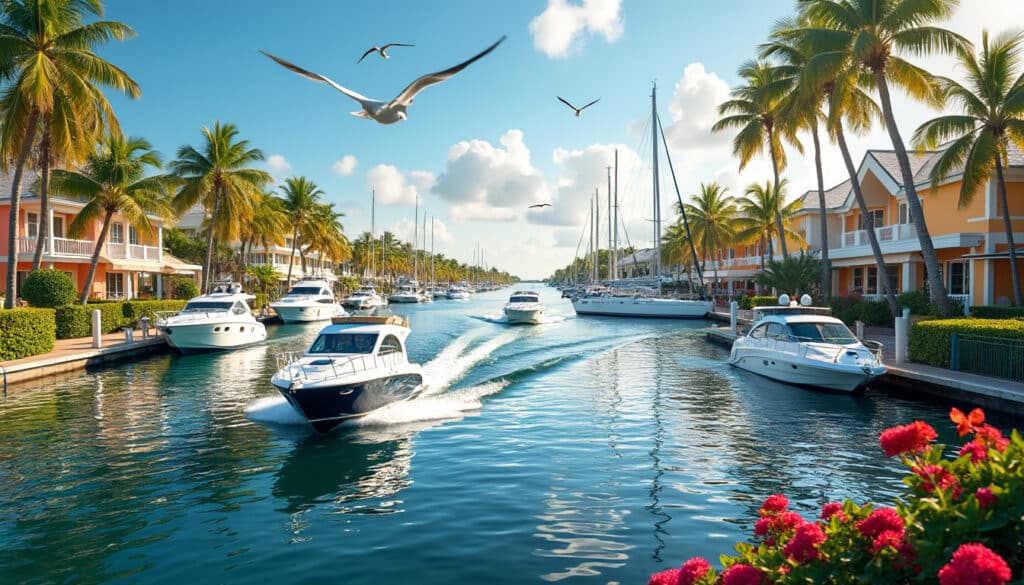
What does Fort Lauderdale look, smell, feel like?
Exploring the vibrant city of Fort Lauderdale can be a multi-sensory adventure with its stunning waterways, bustling arts scene, and culinary delights that offer an immersive experience for locals and tourists alike. Known for its nickname, the “Venice of America,”…

